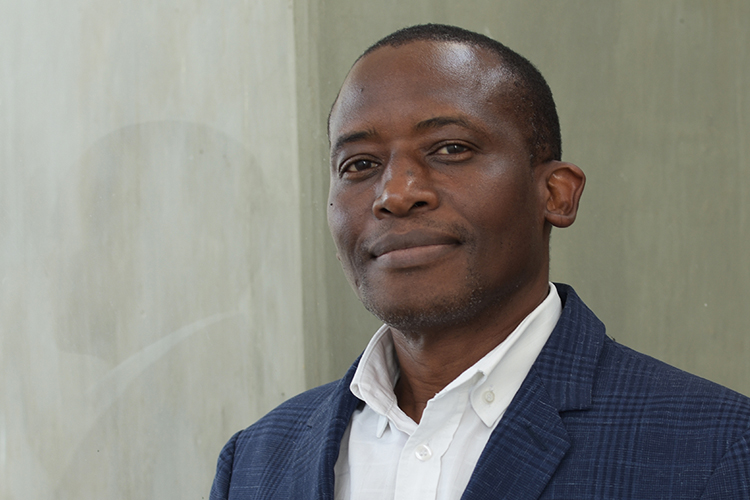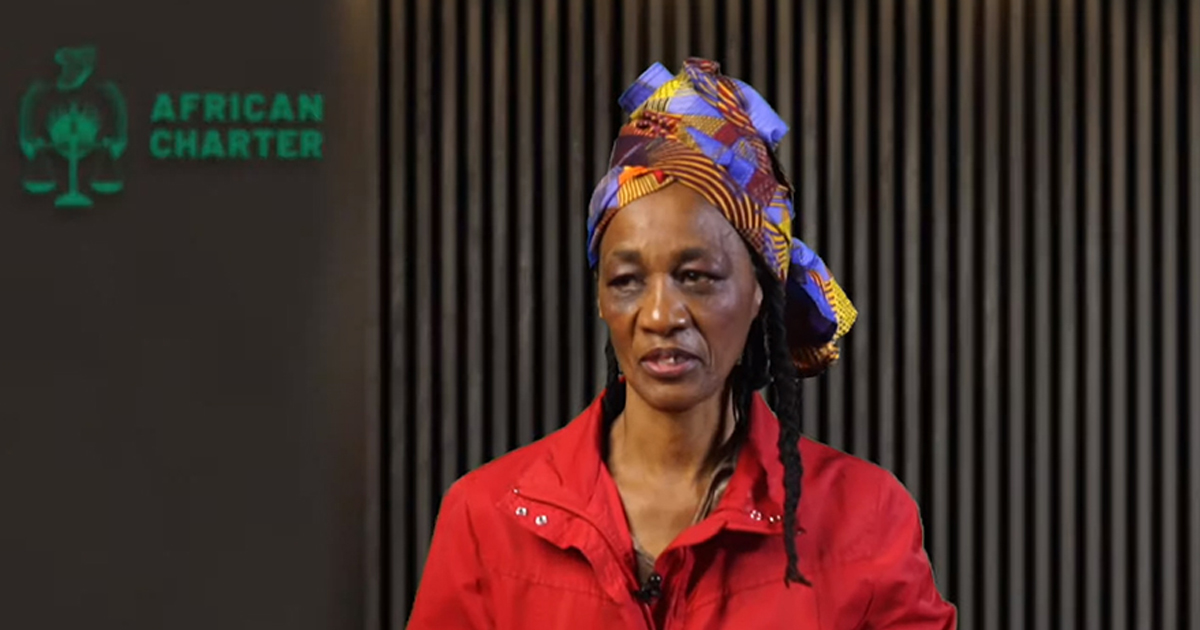The Centre for Human Rights, Faculty of Law, University of Pretoria, is concerned and condemns the arbitrary detention and deportation of Corlett Letlojane by Cameroon authorities on 16 December. Ms Letlojane had travelled to Cameroon and arrived at Yaounde Nsimalen International Airport on 15 December to attend a high-level regional consultation on advocacy for peace and national reconciliation at the invitation of the Human Rights Defenders Network in Central Africa (Réseaux des Défenseurs des Droits Humains en Afrique Centrale (REDHAC)). The detention and deportation of Ms Letlojane by Cameroon violated several rights guaranteed by the African Charter on Human and Peoples’ Rights to which it is a state party.
Detention, deportation and intimidation by Cameroonian authorities
Ms Letlojane is a seasoned, dedicated and passionate woman human rights defender on the African continent and has done considerable human rights work with the African Commission on Human and Peoples’ Rights. Upon her arrival for the REDHAC conference on 15 December Ms Letlojane was arrested and detained by Cameroon state security agents. She was kept in police cells at Nsimalen International Airport for 30 hours without being charged or allowed access to her hosts or lawyers. Ms Letlojane stated that she was traumatized by the lack of social distancing within the police cells exposing her to the dangers of being infected with the COVID-19 virus. She further stated that she felt intimidated, alone and threatened as she could not contact any of her family members, the REDHAC director or lawyers. When REDHAC lawyers eventually arrived the following day, they spoke to her through the police cell window and informed her that there were instructions for her to be deported and they could do nothing further for her. On 16 December immigration officials informed her that she was being deported back to South Africa.
The peace, justice and security conference, which was scheduled to take place on 16 December, was also banned by the Cameroon authorities and close to 100 invited participants were dispersed. These events are reminiscent of what had transpired in 2017 when members of the African Commission study group on freedom of association and assembly were deported from Cameroon when they travelled there to launch guidelines on freedom of association and assembly. Ms Letlojane was part of that delegation.
The actions of the Cameroon authorities have demonstrated a disturbing pattern of attacking and intimidating women human rights defenders. According to human rights defenders on the continent, the whereabouts of the REDHAC Director Maximilienne C. Ngo Mbe remain unknown. An anonymous woman human rights defender stated that the authorities in Cameroon have consistently attempted to silence female activists who are not allowed to speak out or criticise the government. It is further concerning that amongst the guest speakers invited to the Yaounde conference by REDHAC is the current Chairperson of the African Commission, Honorable Ngoy Remi Lumbu.
Human rights violated by Cameroon authorities
The arbitrary detention and deportation of Ms Letlojane as well as the banning of the conference convened by REDHAC, violated several human rights in the African Charter. Ms Letlojane’s detention and deportation violated her freedom of movement within the continent and particularly in Cameroon where she was scheduled to attend and speak at an important conference on peace, justice and security. The treatment she was subjected to by the police and immigration officers in Cameroon was degrading and violated her right to human dignity. The detention in the police cells was a threat to her security and health during the current COVID-19 pandemic.
The banning of the high-level consultative conference was in violation of the freedoms of association, assembly and expression as guaranteed in the African Charter to which Cameroon is a state party. The Chairperson of the African Commission was scheduled to speak at the conference but failed to do so due to the banning of the conference by state authorities
Cameroon should live up to its human rights commitments and promises
The Centre for Human Rights urges Cameroon to live up to its obligations and uphold the spirit and letter of the African Charter by recognizing freedoms of expression, association and assembly. Women human rights defenders, in particular, conducting their work within Cameroon should not be subjected to any political persecution, intimidation and attacks. On the contrary, Cameroon should aim to protect the rights and freedoms of human rights defenders in line with its leadership in the central Africa region.
Cameroon’s actions are in flagrant disregard for its commitment as state party to the African Charter. Arbitrarily refusing access and detaining human rights defenders, and banning an event at which the African Commission would have been represented by its Chairperson, fly in the face of the letter and spirit of the African Charter.
It is ironic that eminent Cameroonian personalities, current and historical, have been appointed members of the African Commission and yet the authorities are failing to respect and uphold human rights guaranteed in the African Charter. It is profoundly contradictory for Cameroon to be represented on the very same African Union body whose work it so blatantly undermines.
It is even of greater irony that Cameroon currently serves as a member of the United Nations Human Rights Council.
South African government should demand an explanation
The Centre for Human Rights also calls on the South African government to demand an explanation for the deportation of Ms Letlojane by the Cameroon authorities.
African Commission should condemn Cameroon’s actions and reiterate the request to undertake the mission
The African Commission should unequivocally condemn the actions of the Cameroon government in respect of Ms Letlojane’s arbitrary arrest, detention and deportation, and the banning of the scheduled meeting. The action in this context begs questions about the treatment of Cameroonian human rights defenders in the country. The Commission should reiterate its request to deploy an investigative mission to Cameroon to inquire into the treatment of human rights defenders in Cameroon, the shrinking of the civil society space, and the human rights situation more generally.
African Union Peace and Security Council should engage with the situation in Cameroon
The Centre for Human Rights further calls on the African Union to look into the situation of human rights, peace and security and address the current challenges in Cameroon.
For more information, please contact:

Centre for Human Rights
Tel: +27 (0) 12 420 3228
Fax: +27 (0) 86 580 5743
frans.viljoen@up.ac.za

Centre for Human Rights
Tel: +27 (0) 12 420 3810
Fax: +27 (0) 86 580 5743
lloyd.kuveya@up.ac.za
